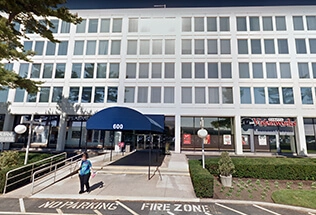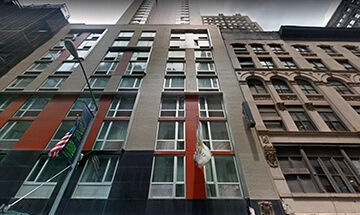Personal injury cases are common, but few are decided in a courtroom. In fact, the majority of personal injury cases are settled out of court, meaning that the plaintiff and defendant come to a financial or other agreement without needing a verdict from a judge or jury.
But what percentage of personal injury cases go to trial, and is your personal injury lawsuit likely to end up in court? Let’s answer both of these questions and more.
To learn more or receive a free consultation about your case, contact Schwartzapfel Lawyers at 1-516-342-2200 today.
What Is a Trial Case vs. Settlement?
When you file a personal injury claim, there are two (2) primary outcomes you can experience.
The first of these is a trial case. In a trial case:
- You and the defendant gather evidence and appear in court at the correct date and time
- You and the defendant present your evidence to a judge or jury
- The judge or jury then evaluates the evidence and decides which of you is right or comes to some other conclusion
In the second outcome, you and the defendant in a case settle out of court.
For example, you may sue an at-fault driver for negligence because you suffered severe injuries due to their inattention on the road. Their insurance company offers you a settlement of $2 million. You then have the choice of taking the settlement or proceeding to a court trial, where you may receive a larger or smaller monetary award depending on the judge or jury’s verdict.
In addition to these outcomes, you can also drop your personal injury claim at any point. You may wish to do this on the advice of your legal counsel, due to cost or other reasons.
How Many Personal Injury Cases Go To Trial?
Despite their importance to many people, personal injury cases rarely go to trial. In fact, according to statistics released by the U.S. Department of Justice, only about 3% of personal injury cases go to trial. Of those cases, roughly 2% are seen by a judge and only 1%t by a jury.
That means that 97% of all personal injury cases never go to trial, and are instead settled out of court or because the plaintiff drops the case. Note: There are many factors that can impact a case plaintiff or defendant’s decision.
Why Do Some Cases Go To Trial?
Even though personal injury cases only account for 3% of all filed cases each year, that still represents thousands to hundreds of thousands of cases across the country. These cases may go to trial for a variety of important reasons.
Prevent Legal Precedent
First, insurance companies or other organizations may take a case to trial if they wish to prevent a legal precedent from being set, even if they believe that they stand a chance of losing. For instance, if an employee injured on the job files a workers’ comp lawsuit against their employer, the employer may accept being taken to court to prevent other employees from filing as well.
This is important because legal precedent can make a company, for instance, more vulnerable to similar lawsuits in the future. Many courts work off of precedent when determining complex cases, so controlling precedent as much as possible is a top priority for organizations like employers, businesses, and the like.
Principle
Secondly, personal injury case plaintiffs (such as accident victims) may refuse an extended settlement from the defendant out of principle. For example, they may wish to take the defendant to court to settle the matter publicly in order to make a statement or to extract as much financial compensation from them as possible.
This motivation is most common in circumstances where the plaintiff has a personal or emotional grievance against the defendant. To learn more about trials, settlements, and related topics, call Schwartzapfel Lawyers now at 1-516-342-2200 for a free consultation.
Need More Damages
Lastly, personal injury case plaintiffs may require more damages than what is offered in their proposed settlements.
For instance, if an auto accident victim has medical bills totaling $3 million dollars, and the insurance company of the negligent driver in the case offers $1 million dollars, they may refuse the settlement offer to see if they can get more compensation to pay for their medical damages.
Legal advisors can tell personal injury case plaintiffs whether it’s wise to accept a settlement or not based on:
- The total medical bills they may face in the future
- Whether they are likely to get a better settlement offer in the future (as part of the ongoing legal negotiation process)
- Whether their lawsuit is likely to succeed and yield a higher amount of damages than what is offered in a settlement
You should note, however, that the majority of settlement offers are carefully calculated to seem attractive to case plaintiffs. As such, it is unlikely that you will ever receive a settlement offer that is insultingly low (though this has happened in the past).
Why Do Some Cases Get Settled?
Just as some personal injury cases go to trial, others get settled out of court for many different, legitimate reasons.
Time and Money
Even in apparently cut-and-dried cases, personal injury lawsuits cost time and money for both sides, who must:
- Pay for legal advisors (except in cases where the legal advisors work on a contingency fee basis. Note: Schwartzapfel Lawyers operates on this basis, meaning you don’t pay us a dime unless we win damages from your case).
- Pay for time spent away from work, home, and/or other activities. Note: Court proceedings can take days, weeks, or, in some cases, months.
- Other related costs, like court filing fees.
Because personal injury lawsuits take time and money, some people don’t want to go through the process. This can make a settlement offer look more attractive, or cause defending parties to offer bigger settlements to minimize the potential lost income from a long, drawn-out lawsuit.
Worried About Evidence
Personal injury defendants may also be worried that the evidence is stacked against them. Therefore, they may offer very attractive settlement amounts to case plaintiffs in an attempt to circumvent the legal process and put the matter behind them.
Personal injury plaintiffs can do the same thing for the same reason. For instance, if an auto accident lawsuit plaintiff’s lawyers state that there isn’t a lot of evidence against the at-fault party, they may recommend accepting a settlement offer and settling the matter out-of-court to avoid further costs stacking up.
Cutting Losses
Lastly, either side involved in a personal injury case may simply wish to cut their losses.
For instance, if an employee sues their employer for negligent behavior, the employer may decide to settle out of court and pay a lot of money simply because it’s cheaper than what they would likely have to pay should the matter go all the way to court in front of a judge.
In this hypothetical scenario, the defendant is simply being practical. Most personal injury cases settle in an attempt to cut losses because of this, especially when the defendant is a company or other large organization. It is usually more cost-effective for such organizations to offer a settlement and consider the matter closed than it is to devote more time and resources to a lengthy lawsuit.
Which Is Right for Your Case?
It can be very difficult to determine whether your personal injury case should go to trial or if you should accept a settlement offer (should one be provided to you by your case’s defending party).
Because even simple personal injury cases can be more complex than you think, it’s a good idea to contact experienced legal representatives like Schwartzapfel Lawyers. As knowledgeable New York City attorneys, we’ve handled cases just like yours and have helped individuals recover settlements totaling millions of dollars.
Whether your case revolves around an auto accident, a workplace accident, product liability, or something else entirely, we can:
- Gather evidence on your behalf and figure out how much evidence is likely out there in your favor
- Provide sound legal counsel no matter what decision you make
- Advise you as to whether you should accept a settlement offer or push your case to a trial date
Additionally, Schwartzapfel Lawyers can ensure that your lawsuit paperwork is filed on time and before the statute of limitations expires for your case. For a free consultation and so much more, contact us today at 1-516-342-2200.
Contact Schwartzapfel Lawyers Today
All in all, your personal injury lawsuit could very well end in a trial and receive a verdict from a judge or jury. However, this will depend largely on the specifics of your case, what you need in terms of financial compensation, and other factors.
Schwartzapfel Lawyers can help determine whether a trial outcome is more likely in your case, or if it would be wiser to accept a settlement offer. So, please, don’t wait or try to file the paperwork for your lawsuit alone.
Instead, contact Schwartzapfel Lawyers at 1-516-342-2200 for a free case evaluation, consultation, and so much more!
Sources:
Schwartzapfel Lawyers, P.C. | Fighting For You™™
Bureau of Justice Statistics | US Department of Justice
How Much Can I Get for My Personal Injury Case and How Long Will It Take? | Nolo
precedent | Wex | US Law | LII / Legal Information Institute


















